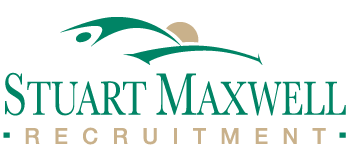In business uncertainty is far from welcome
So, when the surprise results of the election came through, it immediately raised questions as to what disruption it could cause, what changes it could bring about, and how businesses could be affected.
While a hung parliament no doubt has some impact, it doesn’t have to damage your recruiting process; there are a certain number of hiring strategies you can take to help navigate your way through post-election and Brexit uncertainty, and continue to grow your business.
Engage with employment rights
Across all parties in the election, employment rights played a key part within manifestos, with both Labour and the Conservatives promising to guarantee existing worker’s rights while offering enhancements on top. This, alongside a focus on tackling workplace inequality and the gender pay gap, means further developments to workers’ rights are likely, if not inevitable. Ensure you’re up-to-date with future changes as and when they happen, and assure candidates you’re engaged with the issue – it’s a topic that has gathered momentum in recent months, and one that new applicants will likely have a vested interest in.
Enhance your search to combat talent shortages
Another hot topic of the election and one that is likely to come under review, is that of immigration. Theresa May confirmed in her Conservative pledge that she wanted to cut net migration to tens of thousands, and Brexit negotiations are sure to have some impact on current immigration laws. While new changes could bring greater controls, some argue that a fall in the availability of migrant workers could impact hiring in sectors where supply will no longer meet demand. To combat this issue, it’s crucial you focus on your search. Recruitment specialists can use their specialist knowledge and industry experience to find qualified candidates for your role, even when your talent pool is diminished.
Focus on ‘long-termism’
A recent report found that companies with a long-term approach added nearly 12,000 more jobs on average than those that didn’t between 2001-2015*. Long-termism can pay off – while it’s tempting in uncertain economic situations to take a reactive stance to recruitment, businesses rarely stand to benefit. Short-term hires are costly, and can prove less effective in the long-run. Be pro-active in your hiring, and look to implement long-term employee engagement strategies that result in you sourcing employees you can retain for the future. If anything, a strong, committed and talented workforce will only help you successfully navigate the uncertainties that this election could still bring.
Be flexible
With Brexit underway, the government is under more pressure than ever before to create an economic environment that’s attractive to both internal and external investors; it’s where flexibility in the workforce is key. According to a survey by the Recruitment and Employment Confederation, 11% of employers said that regulations should reflect modern working practices, while a study by Timewise from 2015 found that just 6% of job adverts mentioned flexible working options, despite over 14 million UK workers wanting to work flexibly**. To attract top talent in the current market, flexible working is something to acknowledge, engage with, and consider. Not only can it increase productivity and performance in the workplace, but it can also act as a crucial draw for new candidates; so, disregard it with caution.
At the end of the day, your business is only as good as the people you hire. The best way to approach any period of uncertainty is to arm yourself with the best workforce you can, and to do that you’ll need to adopt a robust and effective recruitment strategy.
If you’re looking to find exceptional talent for your business, talk to us at Stuart Maxwell Recruitment about how we can help – no matter the economic climate, we’re confident we have the knowledge, experience, and resources to find the right employee for you.

